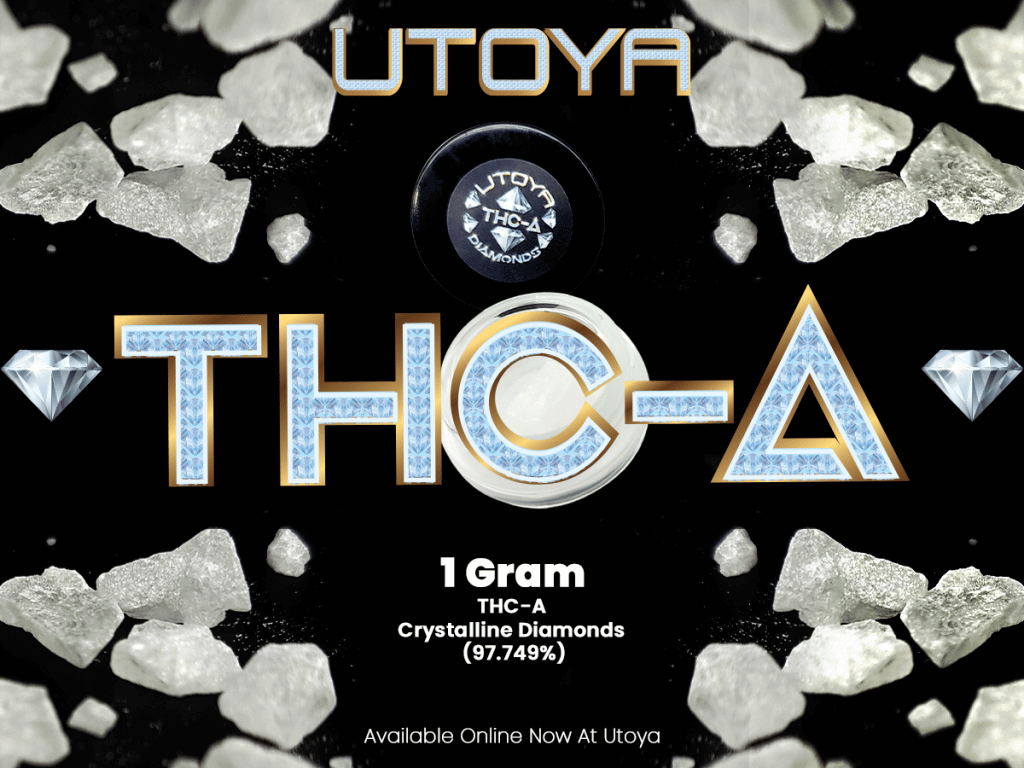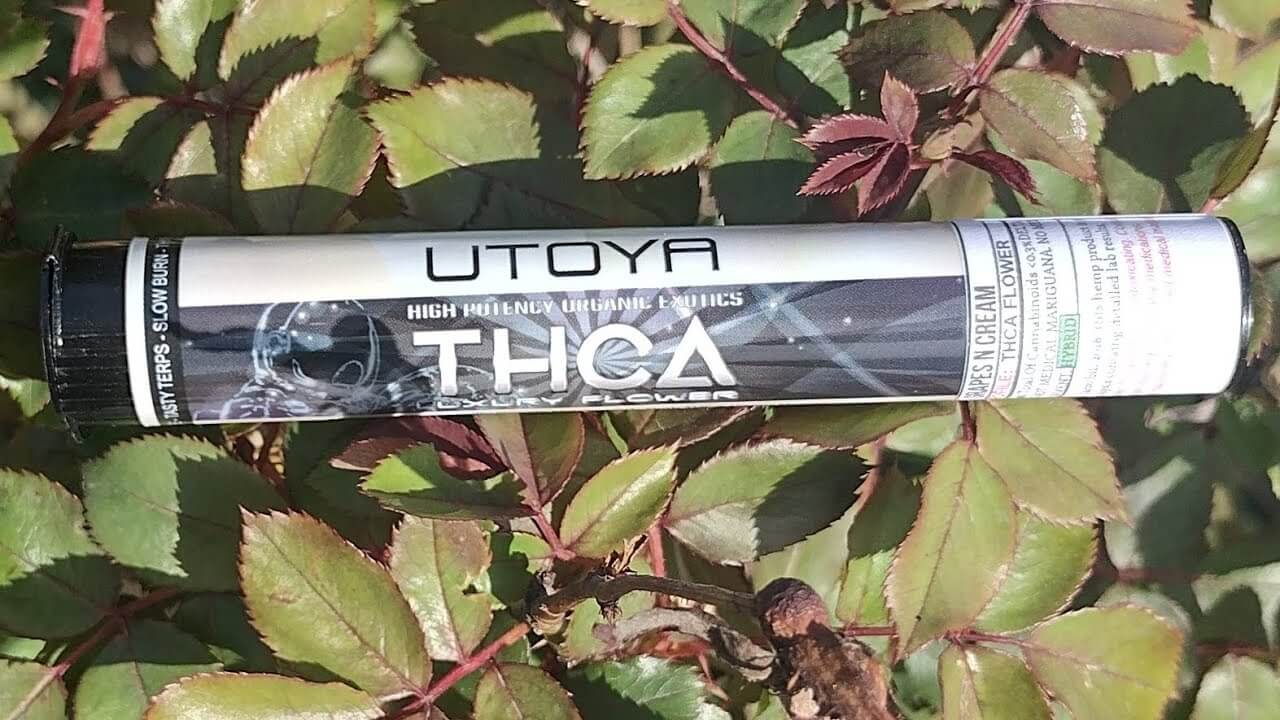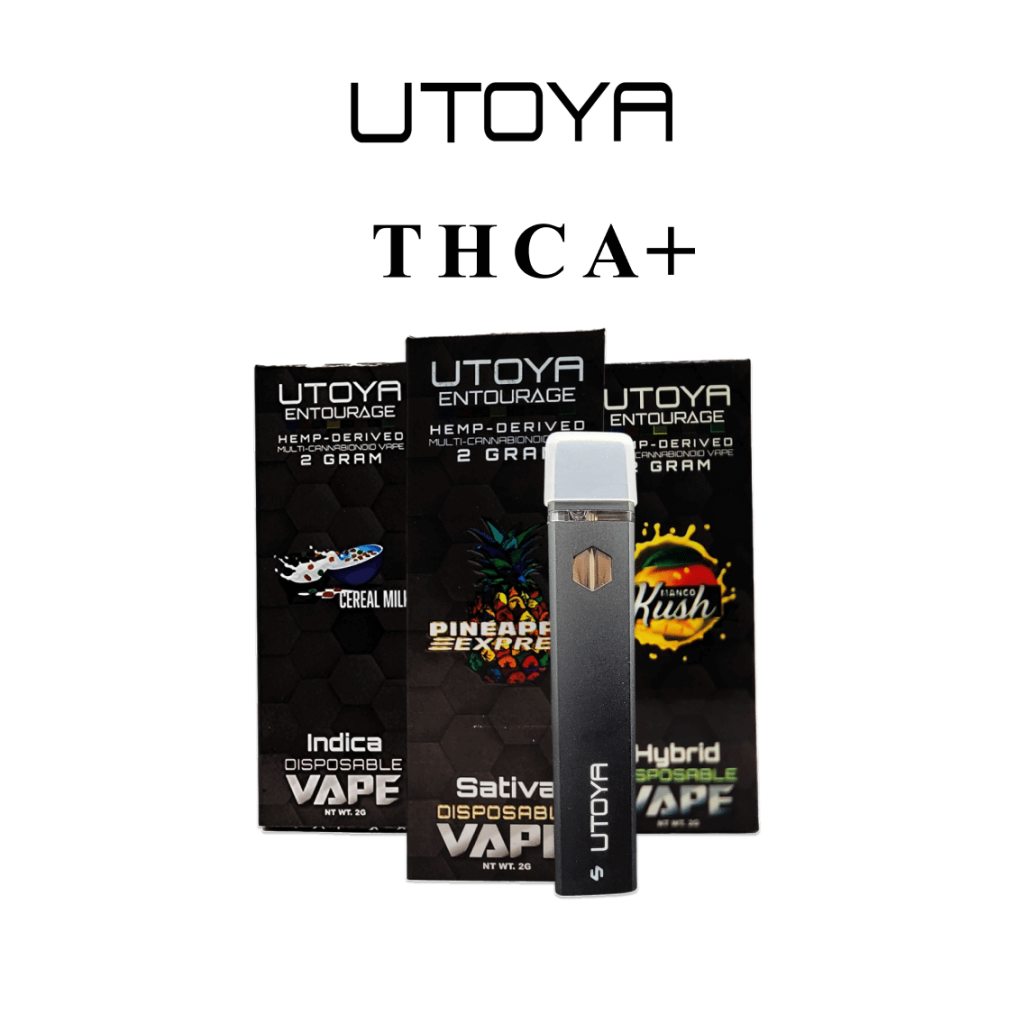What Does THCA Do to the Brain?
THCA is the acidic precursor of THC. It is non-psychoactive and does not produce a high in its original form, which you probably already know. Does this mean THCA does not affect the brain? Experts in Utoya Organics explain the effects of THCA on your brain, from its neurochemistry to its potential impacts.
What is the THCA Cannabinoid?
THCA is a non-psychoactive cannabinoid found in cannabis plants. It is the natural precursor to THC. THCA does not make you high. If you ingest THCA, you won’t experience the psychoactive effects that other cannabinoids produce.
Here’s the twist:
THCA becomes psychoactive THC when exposed to heat. In its original form, THCA is not psychoactive and is usually non-addictive.
How Does THCA Work?
THCA does not bind directly to CB1 receptors like THC. Instead, it interacts indirectly. THCA is not psychoactive, but it can have various effects when it interacts with the Endocannabinoid System. Some of these effects include analgesic, anti-inflammatory, and neuroprotective properties.
It’s important to note that THCA doesn’t cause a “high” because it has a molecular carboxyl ring that prevents it from binding to the receptors responsible for psychoactive effects in the brain.
What Are the Effects of THCA?
THCA, like all cannabinoids, can have various effects on the human body. The effects of THCA depend on factors like dosage, individual physiology, and the presence of other cannabinoids or terpenes within the cannabis plant.
What Does THCA Do to the Brain?
THC and other cannabinoids interact with receptors in your brain, causing psychoactive effects. However, THCA does not bind to these receptors because of its chemical composition. Instead, THCA may have neuroprotective properties and help prevent brain degeneration with age. Below, we will examine the different ways THCA can protect the body and brain.
Is THCA the Same as Delta 9?
THCA, the acidic precursor of delta-9 THC, converts to THC under certain conditions but is a completely different cannabinoid from THC. Decarboxylation is the process of converting THCA to THC. It involves heating THCA by vaping, smoking, or cooking.
The differences between delta-9 THC and THCA include:
- Chemical structure: THCA has a carboxyl group attached, making it larger than delta-9 THC. This structure prevents THCA from binding to the CB1 or CB2 receptors in the body as THC does.
- Effects on the body: THC is psychoactive and causes a “high,” while THCA does not.
- Market sizes: While THCA has become more popular in the cannabis market, THC still leads in terms of product variety and availability.
What Are the Potential Side Effects of THCA?
THCA has potential side effects that are similar to those of THC.
THCA can cause a variety of side effects, including:
- Dizziness
- Red Eyes
- Dry Mouth
These effects are milder than those that THC normally produces. It is also important to know that THCA can show up on a drug screen. If you are due for one, be cautious with your THCA intake.
THCA vs. CBD: How Do They Compare?
THCA is similar to CBD in that both are non-psychoactive compounds that are found in cannabis. They still differ in some respects.
- The molecular structure
- Once heated, THCA converts to THC.
Does THCA Work More in the Brain Than CBD?
THCA could have a greater effect on the brain than CBD. THCA may not bind to the brain as well as THC, but it could have greater effects. This is not to suggest that CBD does not work in the mind, since it has been associated with many health benefits and positive brain functions.
Final Thoughts
THCA does not directly affect the brain like THC because it doesn’t produce a “high.” Unlike THC, it also doesn’t cause intoxication. This makes it a possible therapeutic option for those who want the benefits of cannabis without the psychoactive effects. Some experts believe that THCA could have neuroprotective qualities, shielding brain cells against damage or degeneration. However, further research is needed to fully understand THCA’s effects and benefits.
THCA: FAQs
Does THCA Convert to Delta 9?
THCA will convert into delta 9 THC if heated. This is known as decarboxylation.
Is THCA Stronger Than Delta 9?
THCA is not psychoactive. It will not make you high. There is no comparison to be made between THCA or delta 9 in terms of strength or potency.
Is THCA the Same as Delta 9?
No, it’s not. THCA is an acidic precursor of delta-9 THC and a completely different cannabinoid.
What is the Difference Between THCA and Delta 9?
The main difference is that THCA does not produce a psychoactive effect. THCA won’t get you high, while delta 9 will.





